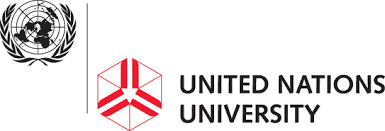- Application Deadline: February 27 2015
- STARTING DATE: 2015•09•01
- APPLICATIONS DUE: 2015•02•27
The Master of Science in Sustainability programme equips students with the knowledge and skills necessary to contribute to solving challenges of sustainability. Drawing on an innovative, interdisciplinary approach, the programme integrates methods and resources from the natural and social sciences, as well as the humanities.
The programme builds on UNU’s strong record in research and capacity development, as well as the extensive network of scholars and academic institutions participating in UNU research. The programme is practically oriented, user-focused, and of the highest academic quality. It is intended for recent graduates, professionals and practitioners interested in the unique opportunity to study at a global university and gain valuable skills, which will enable them as international professionals to meaningfully contribute to the work of governments, civil society, the private sector, and the UN and other international organizations.
Admissions Requirements
Applicants for the Master of Science in Sustainability are required to have met the following requirements by the application deadline in order to be considered:
- A strong interest in sustainability studies.
- Demonstrated commitment to study and understand global issues.
- A completed bachelor’s degree (or equivalent) from a recognized university or institution of higher education in a field related to sustainability. Those who expect to graduate and have a bachelor’s degree or its equivalent conferred before September 2015 may also apply.
- A GPA of 3.5 or above on a 4.0 scale on the bachelor’s degree earned.
- English language proficiency. Please see the section below for more details.
English Language Requirements
The minimum score requirements for English language qualifications required by UNU-IAS are:
- 600 in TOEFL – Paper-Based Testing (PBT)
- 100 in TOEFL – Internet-Based Testing (IBT)
- 7.0 in IELTS – Academic format
Students are required to earn more than 30 credits for the master’s degree, and can take courses from UNU-IAS and partner universities in Japan. Students are also encouraged to take a joint diploma offered by the UNU-IAS and The University of Tokyo Graduate School of Frontier Sciences (UT-GSFS) on Sustainability. The diploma requires students to gain 34 credits, eight of which should be from a pool of courses designated by UNU-IAS and UT-GSFS under the joint diploma programme. A joint diploma can only be awarded to students who successfully complete the two-year master’s degree programme.
Japan Foundation for UNU (JFUNU) Scholarship
The Japan Foundation for UNU (JFUNU) Scholarship is available for outstanding applicants from developing countries* who can demonstrate a need for financial assistance, and they will be considered as candidates for the award of the scholarship.
*The developing countries listed in the latest OECD DAC list.
The JFUNU scholarship provides a monthly allowance of 150,000 JPY* for living expenses for a maximum of 24 months. Travel costs to and from Japan, visa handling fees, and health/accident insurance costs must be covered by the student. The tuition fees are fully waived for the scholarship recipients.
*150,000 JPY is the average monthly living cost for an international student without dependents in Tokyo, although this amount may vary depending on the lifestyle of the student.
Application Procedure:
For More Information:
Visit the Official Webpage of the 2015 Japan Foundation for UNU (JFUNU) Scholarship

